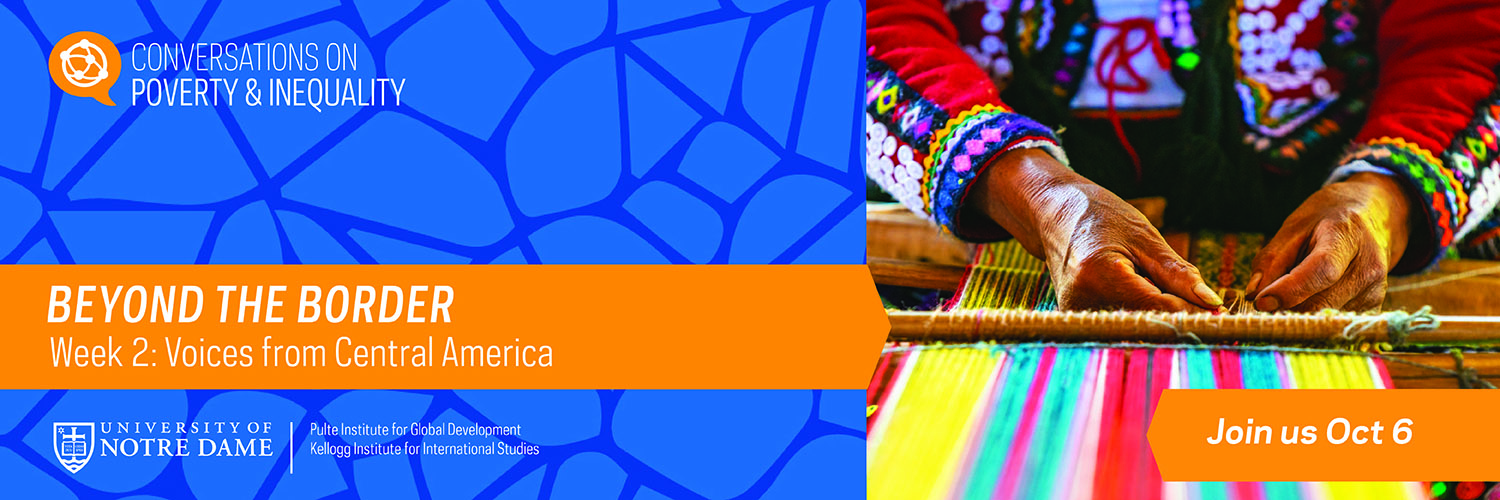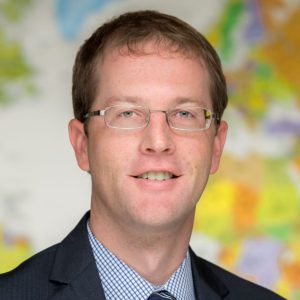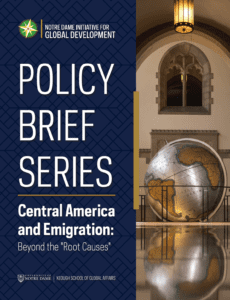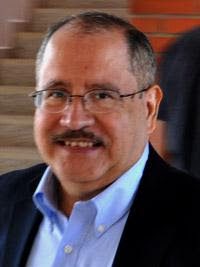Voices from Central America

Central American policymakers and researchers will join us in a discussion to analyze the role that governments, civil society, and the private sector play in regional development.
Welcome to Week 2
 Last week I shared my Central America origin story and how I came to dedicate my work to the region through the relationships I formed. It was those same relationships that led me to want to study how especially the phenomenon of violence grows and is perpetuated in communities, countries, and regions. Comforting my friends as they dealt with the loss of fathers, brothers, and other family members to violence was especially impactful as someone who grew up in a quiet suburb in the Midwest. I will never forget the funeral for a friend’s brother who was shot while driving his taxi. Once you experience something like that, it is hard not to ask, “What can I possibly do to help?”
Last week I shared my Central America origin story and how I came to dedicate my work to the region through the relationships I formed. It was those same relationships that led me to want to study how especially the phenomenon of violence grows and is perpetuated in communities, countries, and regions. Comforting my friends as they dealt with the loss of fathers, brothers, and other family members to violence was especially impactful as someone who grew up in a quiet suburb in the Midwest. I will never forget the funeral for a friend’s brother who was shot while driving his taxi. Once you experience something like that, it is hard not to ask, “What can I possibly do to help?”
As it turns out, I had an interesting comparative case in my adopted hometown of St. Louis where violence has challenged human and economic development for some time. I was curious to see if similar circumstances were true in Central America. As I worked for a non-profit that helps train and support legal institutions in Central America and then as I pursued my PhD, I found that there were some similarities—lack of economic opportunity, underfunded schools, few positive role models. But there were also important differences—a recent history of political violence, stronger gang ties, and failing public safety institutions. So I started looking more closely at communities and what we do to try to increase security, which led me to my work evaluating citizen security programs today.
Last week we focused on the realities in the region from the viewpoint of researchers looking as objectively as possible at the challenges in the region. Next week we will be speaking with government, church, and business leaders who are responding to the challenges in the region. And no matter how connected we are as researchers, practitioners, or policymakers, we try to keep a healthy distance from our subjects. This week, however, we are going in a different direction.
We have invited two Central Americans to join us, and they are both scholars in their own right. I have actually conducted research and co-authored with both of them and can attest to their keen intellect. I also consider them friends and have asked them here in that capacity to ask them to reflect more on the personal side of things and how—maybe more subjectively and normatively—they view development in the region. We are honored to have them both with us this week and look forward to learning from them!
Meet the Guest: Hugo Noé Pino
Hugo Noé Pino is a Honduran economist and former president of the Central Bank and Minister of Finance in Honduras. Pino has also held diplomatic functions as his country’s ambassador to the United Nations and to the United States. He was executive director for Central America on the board of the Inter-American Development Bank (IDB) and principal advisor to the director for Central America at the World Bank. He served as executive director and economist for Honduras of the Central American Institute for Fiscal Studies, ICEFI.
In the academic field, Pino has served as a university professor and director of the Central American Postgraduate Program in Economics at the Autonomous University of Honduras and coordinator of the UNITEC Doctorate in Economics and Business. He has published several articles and edited books on economic policy issues both in Honduras and abroad. He was president of the Honduran Council of Economists and the Federation of University Students of Honduras. He received the José Cecilio del Valle award for professional career from the Honduran Council of Economists in 2018. He currently works as a consultant. He graduated and obtained his master’s degree in Economics from the Autonomous University of Honduras and has a Ph.D. in economics from the University of Texas at Austin.
Meet the Guest: Clara Villatoro

Policy Brief: Central America and Emigration—Beyond the "Root Causes"
Presented by Tom Hare

From April to June 2019, the Pulte Institute for Global Development (previously the Notre Dame Initiative for Global Development or NDIGD) convened an interdisciplinary group of academics, development practitioners, and government officials from El Salvador, Guatemala, Honduras, Mexico, and the United States to review the existing evidence, debate approaches, and consolidate guiding principles for current and future responses to the so-called “root causes” of emigration—migrant networks; poverty and inequality; violence; and, increasingly, climate change.
Going beyond the standard problem and solution approach to these issues, a consensus was reached that the root causes of emigration cannot be separated from the context of El Salvador, Guatemala, and Honduras (together, “northern Central America”) as a region of incomplete transitions to democracy given political-military agreements (Honduras), or armed conflict (Guatemala and El Salvador).
As a part of these transitions, agreements among elites built during the democratic awakening of the 1980s and 1990s came up against economic structural adjustment processes. This debilitated the social contract that emerged from the peace accords (in Guatemala and El Salvador) and, therefore, disrupted the emergence of new social and political actors. The existing institutional framework did not allow for new actors to participate actively, and the economic and social transitions (economic globalization and democratic opening) were left unfinished, creating space for illegal economies.
The interdisciplinary group’s overarching conclusion is that no programmatic or policy success to address root causes of emigration will be complete or sustained without increased democratic norms and practices, and inclusive social and economic models that recognize this context of transition.
In other words, without systemic and structural change, the root causes of emigration will persist long after the current spike in migration has subsided. This policy brief elaborates on this conclusion to provide guidance for policymakers, practitioners, and academics in northern Central America, Mexico, and the United States.
Additional Resources
View the Live Event
Subscribe to the ThinkND podcast on Apple, Spotify, or Google.
Featured Speakers:
- Tom Hare, Senior Technical Associate, Pulte Institute for Global Development
- Hugo Noé Pino, Honduran Economist and Former President & Minister of Finance, Central Bank (Hondurus)
- Clara Villatoro, Central America Regional Human Rights and Democracy Program Coordinator, Pulte Institute for Global Development

